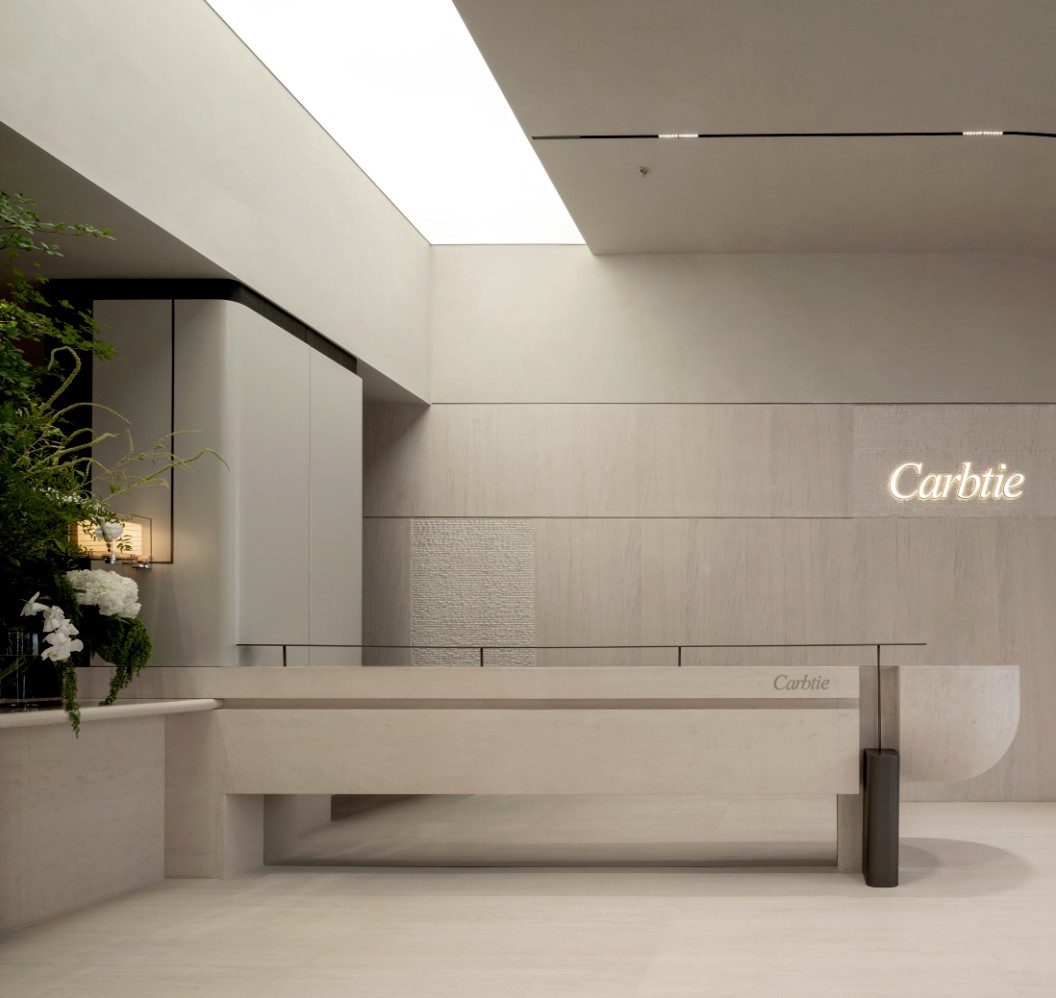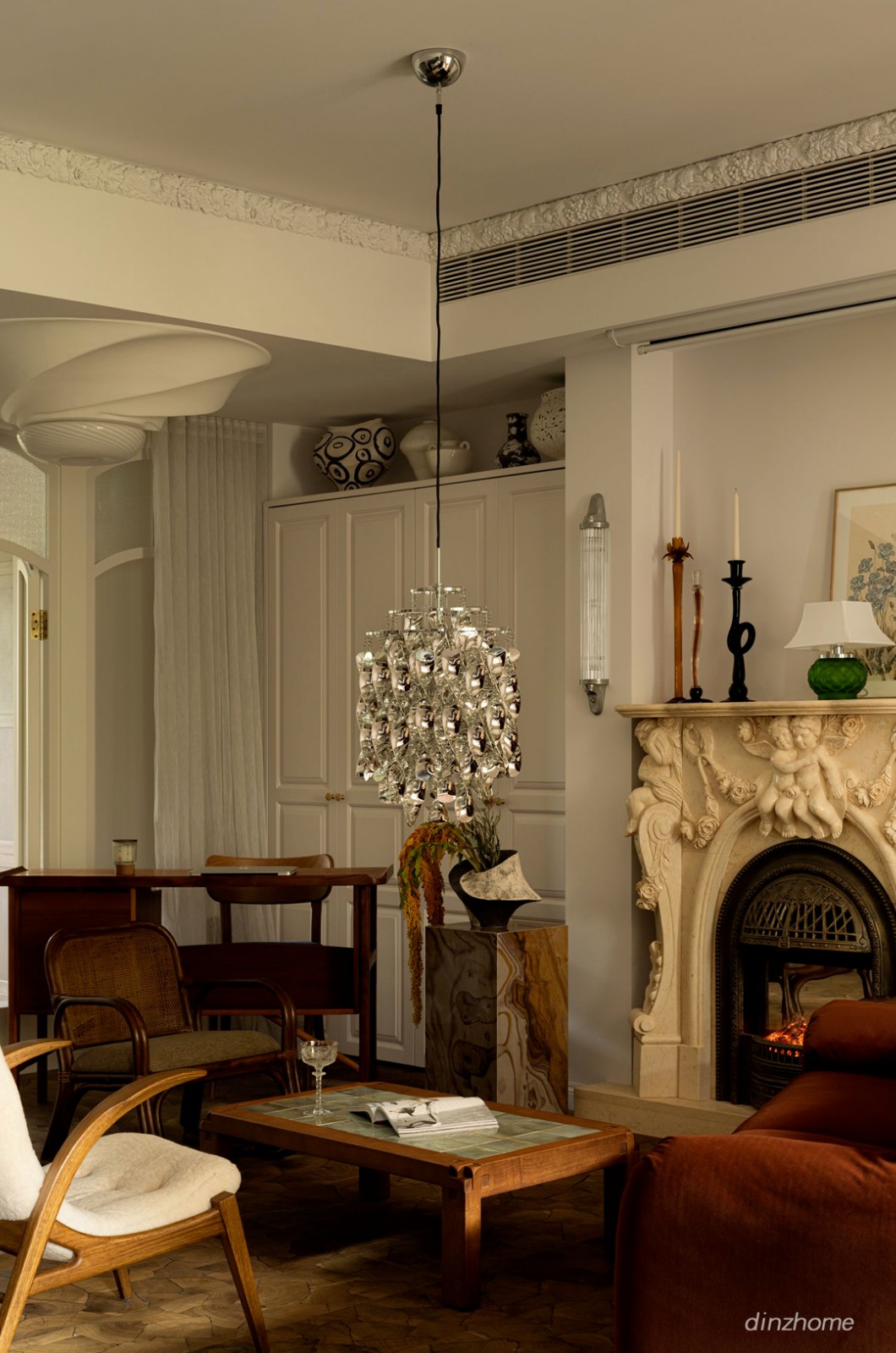Brisbane City Courtyard House Kelder Architects
2018-06-27 17:00
© Angus Martin Photography
(安格斯·马丁摄影)


架构师提供的文本描述。这个项目是为一个建筑商/开发人员客户设计的,它是一个一次性定制的住宅。新的四合院设计取代了1960年的砖块。
Text description provided by the architects. The project was designed for a builder/developer client, it is a one-off custom designed home. The new courtyard house design replaced a 1960’s brick & tile house, the original house had one redeeming feature; a breeze block screen to the street. This has been recycled into the new design, and also inspired the design direction of the new build to reference the Mid-Century period, particularly the classic examples of homes built in Palm Springs in Southern California during this period.
© Angus Martin Photography
(安格斯·马丁摄影)


Ground Floor Plan


© Angus Martin Photography
(安格斯·马丁摄影)


开发商想要一个令人兴奋的,可居住的家庭住宅,将充分利用该网站和位置。考虑到现有树木的位置、地点、地形和布里斯班的亚热带气候。它需要对户外开放,并以室内/室外生活为中心。这座新房子坐落在距国开行约4公里的布里斯班市中心郊区的一座582平方米的倾斜街区上。奥琴花以其长满绿叶的街道而闻名,街道两旁排列着布里斯班的传统风格“木材”。
The developer wanted an exciting and liveable family home that would make the most of the site and location. Taking into consideration the location of the existing tree’s, the sites orientation, topography and Brisbane’s sub-tropical climate. It needed to be open to the outdoors and be centered on indoor/outdoor living. The new house sits on a sloping 582sq.m block in the inner-city Brisbane suburb of Auchenflower, about 4km from the CDB. Auchenflower is known for its character filled, leafy - hilly streets that are lined with Brisbane’s traditional style, ‘timber & tin’ Queenslanders.
© Angus Martin Photography
(安格斯·马丁摄影)


布里斯班市议会将奥琴花归类为一个传统的建筑特色区。任何新的发展必须对1946年以前或该地区早期住宅的特点敏感。这是为了保存“当地的传统特征”。在奥琴花建造一个当代的家是困难的,因为理事会的指导方针是非常限制性的,需要创造性地和技巧地谈判。在这种情况下,人们很难调和世纪中叶渴望的现代主义美学与该地区传统昆士兰人占主导地位的语境美学。
Brisbane city council classifies Auchenflower as a Traditional Building Character area. Any new development must be sensitive to the character of the predominant pre-1946 or earlier homes in the area. This is aimed at preserving the ‘traditional character of the locality’. To build a contemporary home in Auchenflower is difficult as council’s guidelines are very restrictive and need to be creatively and skilfully negotiated. In this instance, it was difficult to reconcile the aspirational modernist mid-century aesthetic with the predominant contextual aesthetic of the traditional Queenslanders in the area.
© Angus Martin Photography
(安格斯·马丁摄影)


我们面临的挑战是设计一个当代的家庭,也将尊重当地传统的特点。规划的限制在我们的支持下工作,因为它迫使开发了设计和一种方法,在没有它的情况下可能不会发生这种情况。其结果是,这个家的设计独特地回应了布里斯班市的地位和客户对本世纪中叶设计的渴望。引起更有趣和分层反应的想法的冲突。
The challenge for us was to design a contemporary home that would also respectfully appropriate the traditional character of the locality. The planning constraints worked in our favor as it forced a development of the design and an approach that may not have naturally occurred without it. The result is that the design of this home uniquely responds to its place in the city of Brisbane and the client's desire to reference Mid-Century design. A clash of ideas that made for a much more interesting and layered response.
© Angus Martin Photography
(安格斯·马丁摄影)


在较高的层,这所房子是防风板和纤维衣,就像该地区的昆士兰人一样,而不是在街道上设置微风屏障(在这种情况下,BCC严格禁止),2号阳台的侧翼,用轻质木材板进行遮挡,提供隐私,并过滤西方的阳光。房子的下层是砖块,把它固定在工地上,并清楚地区分上下两层,这是昆士兰人的另一个特点。较高水平的长比例位于砖基之上,并从分隔场地前部的挡土墙上伸出一半的悬臂。
At the upper level, the house is weatherboard and fibro clad, much like the Queenslanders in the area and instead of a breezeblock screen to the street (strictly prohibited by BCC in this instance), 2 veranda’s flank the entry, screened with lightweight timber battens, providing privacy and filtering the western sun. The lower level of the house is brick, anchoring it to the site and clearly differentiating the upper and lower levels, another characteristic of the Queenslander. The long horizontal proportion of the upper level sits atop the brick base and appears to cantilever across half the site from the retaining wall that divides the front of the site.
Upper Floor Plan
上层平面图


房子的顶部是一个低螺距锡屋顶,缩小到一个精细,低和长筋膜线跨越房子的前面,这进一步提高了设计水平和精细的中叶线和比例。房子的中心是一个景观美化,朝北的庭院,其中包括一个游泳池。在一定程度上背离了该地区的正常街区配置和BCC首选的规划模式,通常是位于街区中心的房屋,前后有大量的挫折。
The house is capped with a low pitch tin roof that diminishes to a fine, low and long fascia line across the front of the house, this further enhances the designs horizontality and the fine mid-century lines and proportions. The house is centered around a landscaped, north facing courtyard that includes a pool. A somewhat radical departure from the normal block configurations in the area and the BCC preferred planning model, typically being a house in the center of the block, with generous front and rear setbacks.
© Angus Martin Photography
(安格斯·马丁摄影)


所有底层的起居区都围绕着中央庭院展开并向它敞开。庭院为家庭提供了许多好处;把北方的阳光和微风带到室内一整天,这是一个美妙的,受保护的景观,供居住地区开放,户外家庭生活和活动是家庭的中心,并与内部非常紧密地联系,这是布里斯班生活的必经之路。最重要的是,房子有一个集中的前景,不能建造或堵塞。创建庭院就像拿走传统的后院,把房子包围起来,这样居住者就能有效地住在离它更近的地方,从里面得到更多可居住的互动,并完全控制自己的主要景观。
All the ground floor living areas fold around the central courtyard and open out to it. The courtyard provides many benefits for the home; bringing northern light and breezes into the interior all day, it is a wonderful, protected landscape for the living areas to open onto, outdoor family life and activities are central to the home and very much connected to the interior, a must for life in Brisbane. Most importantly, the house has a centralized outlook that cannot be built out or blocked. Creating the courtyard was like taking the traditional backyard and wrapping the house around it, so the occupants can effectively live in much closer proximity to it and get much more liveable interaction out of it and have complete control over their primary outlook.
© Angus Martin Photography
(安格斯·马丁摄影)


该设计响应网站的形状,创造了一些有趣的角度,在房子和网站陡峭的地形要求设计反应与动态相互作用的水平。房子从街道上流到入门层,然后又向下延伸到住宅的中心、中央庭院和周围的关键居住区域。房子的总楼面面积是400平方米,所以它在更大的一边,然而,它坐在工地上的方式非常不起眼,因为房子被切割成现场,保留了一层楼在街道的水平,并走下现场,以显示其全部高度。基本上,这意味着,在现实中,一个大房子呈现自己的街道作为一个更小,更平易近人和一般更好的小房子。
The designs response to the shape of the site created some interesting angles in the house and the sites steep topography demanded the design respond with a dynamic interplay of levels. The flow of the house steps down from the street level to entry level and then down again to the heart of the home, the central courtyard and the key living areas around it. The house has a gross floor area of 400sqm, so it is on the larger side, however, it sits on the site in a very unimposing way as the house is cut into the site, retaining a single story at the street level and stepping down the site to reveal its full height. Basically, this means that what is, in reality, a large house presents itself to the street as a smaller, more approachable and generally nicer little house.
© Angus Martin Photography
(安格斯·马丁摄影)
















































































































Architects Kelder Architects
Location Brisbane, Australia
Lead Architects Wesley Kelder, Joel Kelder
Area 400.0 m2
Project Year 2018
Photographs Angus Martin Photography
Category Houses
Manufacturers Loading...
























